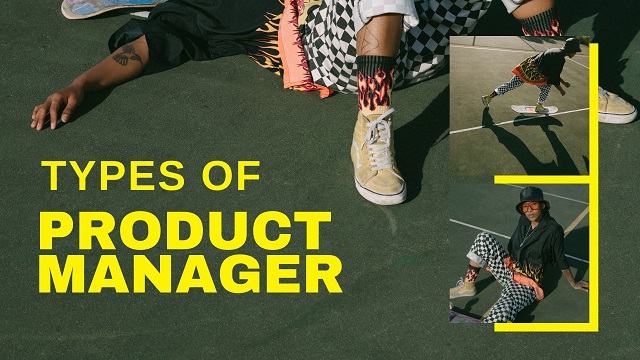Product Manager – Types, Salary, Work and More in 2024
Hello friends, today we will know about Product Manager.
What is Product Manager?
A Product Manager is a professional responsible for overseeing the development and launch of a product, from concept to launch.
They work with cross-functional teams to define product strategy, create product roadmaps, and guide the development process. Here is some detailed information about Product Managers:
Product Strategy: Product Managers are responsible for defining the product strategy. This involves identifying customer needs, understanding the competition, and defining the product vision and goals.
Product Roadmap: Product Managers create a product roadmap that outlines the plan for the product’s development. They prioritize features and functionality, establish timelines, and define milestones.
Product Development: Product Managers work closely with cross-functional teams, including designers, engineers, and quality assurance, to ensure that the product is developed according to the roadmap.
Market Research: Product Managers conduct market research to identify customer needs and trends in the marketplace. They use this information to inform product development decisions and refine the product roadmap.
Competitive Analysis: Product Managers analyze the competition to identify areas of differentiation and inform the product strategy.
Customer Feedback: Product Managers collect customer feedback through surveys, focus groups, and other methods. They use this feedback to inform product development decisions and improve the product.
Pricing Strategy: Product Managers determine the pricing strategy for the product, taking into account customer needs, competition, and market trends.
Product Launch: Product Managers oversee the product launch, ensuring that all aspects of the launch, including marketing and sales, are executed successfully.
Product Performance: Product Managers monitor the performance of the product after launch, collecting data on sales, customer feedback, and other metrics. They use this information to inform product updates and future product development decisions.
Stakeholder Communication: Product Managers communicate with stakeholders, including executives, investors, and other team members, to ensure that everyone is informed about the product’s development and performance.
Product Managers must possess a range of skills, including project management, product development, market research, and communication.
They must be able to work effectively with cross-functional teams, prioritize tasks, and make data-driven decisions. Successful Product Managers can create products that meet customer needs and drive business growth.
How to Become a Web Developer or Digital Designer

Types of Product Managers
Product Managers can be categorized into different types based on their focus area or industry. Here are some of the most common types of Product Managers:
Technical Product Manager: A Technical Product Manager focuses on the technical aspects of a product, such as architecture, functionality, and performance. They work closely with engineering teams to ensure that the product is technically sound and meets the needs of the end users.
Consumer Product Manager: A Consumer Product Manager focuses on consumer-facing products and works to understand the needs and preferences of the target audience. They gather consumer insights, perform market research, and create products that appeal to the target demographic.
Enterprise Product Manager: An Enterprise Product Manager focuses on products designed for businesses and organizations. They work to understand the unique needs of enterprise customers, develop products that meet those needs, and build strong partnerships with enterprise customers.
Platform Product Manager: A Platform Product Manager focuses on building platforms that support other products and services. They work to understand the needs of developers and other stakeholders and create platforms that are flexible, scalable, and easy to use.
Growth Product Manager: A Growth Product Manager focuses on driving growth and user acquisition for a product. They work to identify growth opportunities, develop experiments and strategies to increase user acquisition and retention, and track and analyze metrics related to growth.
Digital Product Manager: A Digital Product Manager focuses on digital products such as software, mobile apps, and web applications. They work closely with development teams to ensure that the product is designed to meet the needs of the end users and is intuitive and easy to use.
Data Product Manager: A Data Product Manager focuses on products that are centered around data. They work to identify opportunities to leverage data to drive business growth and work with data scientists and analysts to develop data-driven products and features.
Product Manager roles can vary widely depending on the organization and industry, but these are some of the most common types.
How to become a Product Manager?
Becoming a Product Manager typically requires a combination of education, experience, and skills. Here are some steps you can take to become a Product Manager:
Earn a degree: While there is no specific degree required to become a Product Manager, many employers prefer candidates with a degree in business, engineering, computer science, or a related field.
Gain experience: Product Managers typically have several years of experience in related roles such as software development, marketing, or project management. Look for opportunities to work on cross-functional teams, take on leadership roles, and develop skills in communication, problem-solving, and strategic thinking.
Develop product knowledge: To be an effective Product Manager, you need to have a deep understanding of the product you are managing, as well as the market and industry in which it operates. Stay up-to-date on industry trends and emerging technologies, and develop a strong understanding of your competitors and target market.
Hone your skills: Product Managers need a variety of skills, including communication, problem-solving, project management, and leadership. Look for opportunities to develop these skills through courses, workshops, and on-the-job experience.
Build a network: Networking can be an important part of building a career as a Product Manager. Attend industry events, connect with other professionals in your field, and look for opportunities to collaborate with others on product development projects.
Consider certification: While not required, there are several certifications available for Product Managers, such as the Certified Product Manager (CPM) from the Association of International Product Marketing and Management (AIPMM).
Apply for Product Manager roles: Once you have the necessary education, experience, and skills, start applying for Product Manager roles. Look for opportunities that align with your interests and strengths, and be prepared to demonstrate your knowledge, skills, and experience during the interview process.
What is the salary of a Product Manager in India?
The salary of a Product Manager in India can vary depending on factors such as company size, industry, experience level, and location.
However, according to the job search website Indeed, the average salary for a Product Manager in India is approximately ₹1,900,000 per year.
This can range from around ₹900,000 per year for entry-level positions to over ₹4,000,000 per year for senior-level positions in large companies.
Additionally, Product Managers may also receive bonuses and other benefits, such as stock options, which can further increase their compensation.
What is the salary of the Product manager in Foreign Countries?
The salary of a Product Manager can vary widely in foreign countries depending on several factors such as the country, city, industry, company size, and years of experience.
Here are some estimated annual salaries for Product Managers in a few popular foreign countries based on data from PayScale:
- United States: $88,000 to USD 155,000
- Canada: CAD 72,000 to CAD $125,000
- United Kingdom: £42,000 to £91,000 GBP
- Germany: €55,000 to €99,000 EUR
- Australia: AUD 85,000 to AUD $150,000
It’s important to note that these are just estimates and the actual salary can vary based on the aforementioned factors.
Additionally, Product Managers may also receive bonuses, profit-sharing, and stock options as part of their compensation package in some companies.
10 responsibilities of Product Manager
Here are 10 common responsibilities of a Product Manager:
- Conduct market research and analysis to identify customer needs and market trends
- Develop and maintain a product roadmap that outlines the vision and strategy for the product
- Work with cross-functional teams such as designers, engineers, and marketers to develop and launch products
- Define and prioritize product features and requirements based on customer feedback and market insights
- Develop and manage product budgets and timelines to ensure the timely delivery of products
- Manage the product life cycle, including product launches, updates, and retirements
- Monitor product performance and gather feedback to identify areas for improvement and growth opportunities
- Work with sales and marketing teams to develop go-to-market strategies and messaging for products
- Collaborate with external partners such as vendors, suppliers, and customers to enhance the product offering
- Stay up-to-date with industry trends and emerging technologies to inform product development and strategy.
Product Manager Specialist
A Product Manager Specialist is an experienced professional in the field of product management who has expertise in a particular area, industry, or type of product.
They possess in-depth knowledge of the market and customer needs and can create innovative and effective product solutions that meet those needs.
Some examples of Product Manager Specialists may include:
E-commerce Product Manager: A specialist in developing and managing products for e-commerce platforms, including online marketplaces, mobile apps, and web-based storefronts.
Healthcare Product Manager: A specialist in developing and managing products for the healthcare industry, including medical devices, software, and services.
Financial Product Manager: A specialist in developing and managing financial products and services, such as banking apps, investment tools, and payment systems.
SaaS Product Manager: A specialist in developing and managing software-as-a-service (SaaS) products, including cloud-based software applications and services.
Mobile Product Manager: A specialist in developing and managing products for mobile devices, such as smartphones and tablets, including mobile apps and services.
These are just a few examples, and there are many other areas in which a Product Manager Specialist may specialize, depending on their expertise and industry knowledge.
How to Become a Computer and Information Systems Manager

FAQ
What qualifications do I need to be a product manager?
To become a product manager, there is no specific educational requirement or degree that is mandatory.
However, most employers prefer candidates with a bachelor’s degree in business administration, computer science, engineering, or other related fields.
Additionally, a master’s degree in business administration (MBA) can also be beneficial for higher-level positions.
Apart from educational qualifications, product managers should have several years of experience in related fields such as product development, project management, marketing, or engineering.
Strong analytical and problem-solving skills, communication and leadership abilities, and a deep understanding of customer needs are also essential qualities for a successful product manager.
Is product manager a high-paying job?
Yes, product management is generally considered a high-paying job. According to data from Glassdoor, the average salary for a product manager in the United States is around $118,000 per year, but this can vary widely depending on factors such as location, experience, and industry.
Senior product managers and those with more experience can earn significantly more, with some earning over $200,000 per year.
Is product manager a good job?
Product management can be a fulfilling and rewarding career for those who enjoy solving problems and creating products that meet customer needs.
The role often involves working closely with cross-functional teams and collaborating with stakeholders to make informed decisions about product strategy, roadmap, and development. It can also offer opportunities for career growth and advancement.
Regarding salary, product managers are often well compensated, and salaries can vary depending on factors such as location, industry, and experience.
According to data from Glassdoor, the average base salary for a product manager in the United States is around $107,000 per year, with the potential for bonuses and stock options.
What is the salary of India today’s product manager?
The salary of a product manager in India can vary depending on factors such as company size, industry, location, experience, and skills.
However, according to various job portals, the average salary for a product manager in India is around INR 1,500,000 – INR 2,500,000 per annum. This can vary based on the factors mentioned above.
What is the salary of a product manager in India for freshers?
The salary of a product manager in India for freshers varies depending on factors such as the company, industry, location, and skills.
On average, a product manager in India with 0-2 years of experience can expect to earn between ₹500,000 and ₹1,500,000 per annum.
However, some companies may offer higher salaries based on the candidate’s skills and qualifications. It is worth noting that salaries may also vary based on the type of product being managed, such as software, hardware, or services.
Is product manager a stressful job?
Product management can be a challenging and demanding job, which can lead to stress. Product managers need to work with cross-functional teams, manage timelines, prioritize tasks, and make strategic decisions while dealing with a lot of uncertainties.
However, stress levels can vary depending on the company culture, the nature of the product, and the individual’s ability to manage their workload and handle pressure.
It’s important to have good communication and problem-solving skills and to be able to work well under pressure as a product manager.
Can a fresher be a product manager?
It is rare for a fresher to become a product manager, as most companies prefer to hire candidates with some prior work experience in related roles such as software engineering, marketing, or design.
However, it is not impossible for a highly skilled and motivated fresher to enter the field. To increase their chances, they may need to pursue relevant education or certifications, demonstrate a strong understanding of product management principles, and showcase relevant skills such as project management, market analysis, and communication.
Networking and gaining relevant experience through internships or volunteer work can also be helpful.
Is product management a tough career?
Product management can be a challenging career, as it requires a combination of technical, business, and interpersonal skills.
A product manager must be able to understand customer needs, market trends, and technology developments, as well as collaborate with cross-functional teams to design and launch successful products.
The role involves making strategic decisions, prioritizing features, managing budgets and timelines, and handling unexpected challenges that arise throughout the product development process.
While the job can be demanding, many product managers find it rewarding to see their products succeed in the market.
What is the dark side of being a product manager?
While being a product manager can be an exciting and rewarding career, there are several challenges and potential “dark sides” to the role, including:
Constantly balancing competing priorities: Product managers are responsible for delivering products that meet customer needs, while also satisfying business goals and objectives.
This means constantly making trade-offs and prioritizing certain features or initiatives over others, which can be a difficult and stressful process.
Dealing with ambiguity: Product managers often work on projects or products that are complex and uncertain, and may not have a clear path forward.
This can be frustrating and challenging, as it requires the ability to make decisions with incomplete information and navigate through uncertainty.
Managing stakeholder expectations: Product managers need to work closely with various stakeholders, including customers, executives, engineers, and designers.
This can be a juggling act, as each stakeholder group may have different goals, priorities, and expectations for the product.
Handling criticism and failure: When a product fails or receives negative feedback, product managers often bear the brunt of the blame.
This can be demoralizing and challenging to navigate, especially when dealing with high-stakes projects or products.
Working long hours: Product management can be a demanding role that requires a significant time commitment, including working long hours, nights, and weekends, especially when working on tight deadlines.
Overall, while product management can be a rewarding career, it also comes with significant challenges that require resilience, adaptability, and strong communication skills to navigate successfully.
Do product managers become CEO?
It is not uncommon for product managers to eventually become CEOs. Some successful CEOs, such as Sundar Pichai of Google and Satya Nadella of Microsoft, began their careers as product managers.
The skills and experience that product managers acquire in their roles, such as market research, customer understanding, and product development, can be highly valuable in a leadership position.
Additionally, product managers often work closely with other departments, such as sales, marketing, and engineering, which provides them with a broad understanding of the business and its operations.
That being said, becoming a CEO typically requires more than just product management experience.
CEOs need to have a broad understanding of business strategy, finance, and leadership, as well as the ability to manage a team and make tough decisions.
Therefore, while product management experience can be an asset in a CEO role, it is not the only factor that determines success.
How to Become a Computer Network Architect
How old is the average product manager?
There is no specific age range for product managers as it is a role that can be pursued at any stage of one’s career. However, based on industry data and trends, it is common for product managers to be in their late 20s to mid-30s.
Many product managers begin their careers in other roles such as engineering, design, or marketing, and transition into product management after gaining some experience in their field.
This often happens after a few years of experience, which can typically be in the range of 3-5 years.
It is also worth noting that there is no age limit for pursuing a career in product management. People from a wide range of backgrounds and with various levels of experience can become successful product managers, provided they have the necessary skills, experience, and knowledge.
What position is under product manager?
The positions that are commonly found under a Product Manager can vary based on the size of the organization and the scope of the product line, but some of the typical roles that report to a Product Manager include:
Associate Product Manager (APM): An entry-level role where individuals work with a Product Manager to gain experience in product management.
Product Owner: Responsible for working with the development team to define and prioritize features for a specific product or product line.
Product Marketing Manager: Responsible for developing and executing the go-to-market strategy for a product, including product messaging, pricing, and promotion.
UX/UI Designer: Works closely with the Product Manager to design the user interface and user experience of the product.
Technical Program Manager: Responsible for the planning and execution of technical projects that support the development of the product.
Business Analyst: Works with the Product Manager to analyze market trends, customer needs, and product performance to inform product strategy.
These positions work closely with the Product Manager to help execute the product roadmap and achieve the overall product goals.
Who is the boss of a product manager?
The boss of a Product Manager (PM) can vary depending on the organizational structure of the company.
Typically, the Product Manager reports to a Director or a VP of Product, who is responsible for overseeing the product management function and ensuring that the product strategy aligns with the overall business goals.
In some organizations, the Product Manager may also report to a General Manager or a Business Unit Manager who oversees a specific product line or business unit.
Additionally, the Product Manager may have dotted-line reporting relationships with other functional leaders, such as the engineering, design, or marketing leaders, who collaborate with the PM to achieve the product goals.
Ultimately, the boss of a Product Manager is someone who provides guidance, support, and resources to help the PM succeed in their role and achieve the product vision.
Is product manager an IT role?
While product management often involves technology products or services, it is not necessarily an IT role. Product management can be found in a wide range of industries, including software, hardware, consumer goods, finance, healthcare, and more.
Product managers are responsible for identifying customer needs and developing products that meet those needs.
This involves working closely with cross-functional teams, including engineering, design, marketing, sales, and customer support, to ensure that the product is developed, launched, and supported successfully.
While having a background in IT or computer science can be helpful for a product manager working in the technology industry, it is not a requirement for the role.
Product managers need a broad range of skills, including market research, customer discovery, product design, project management, and more, which can be acquired through a variety of educational and professional backgrounds.
Overall, while product management is often associated with the technology industry, it is a role that can be found in many different industries and is not necessarily an IT role.
Can a girl become a product manager?
A girl can become a product manager! Product management is a role that is open to anyone, regardless of gender or any other characteristic.
Many successful product managers are women who have made significant contributions to their organizations and the industry as a whole.
While there may be some challenges that women face in the workplace, such as bias, discrimination, or limited opportunities, it is important to recognize that these challenges exist and work to address them.
Many companies are taking steps to promote diversity and inclusion in their workforce and ensure that everyone has an equal opportunity to succeed.
Ultimately, what matters most for a product manager is having the necessary skills, experience, and knowledge to excel in the role.
Anyone who is passionate about the product and has the right skill set can become a successful product manager, regardless of gender or any other characteristic.
Can MBA become a product manager?
Yes, an MBA (Master of Business Administration) graduate can become a product manager. Having an MBA can be an asset for a career in product management, as the degree provides a solid foundation in business strategy, finance, marketing, and operations, which are all critical skills for a product manager.
Many MBA programs offer courses or specializations in product management or entrepreneurship, which can provide valuable insights and practical experience for aspiring product managers.
Additionally, many companies actively recruit MBA graduates for product management roles, as they bring a diverse set of skills and experiences to the role.
However, it is worth noting that an MBA is not a requirement for becoming a product manager. Product managers come from a variety of educational and professional backgrounds, including engineering, design, marketing, and more.
What matters most is having the necessary skills, experience, and knowledge to excel in the role, and an MBA can be one path to developing those skills.
Can I become a product manager without MBA?
Yes, you can become a product manager without an MBA. While having an MBA can be helpful, it is not a requirement for a career in product management.
Product managers come from a variety of educational and professional backgrounds, including engineering, design, marketing, sales, and more. What matters most is having the necessary skills, experience, and knowledge to excel in the role.
To become a successful product manager, you should focus on developing skills in areas such as market research, customer discovery, product design, project management, and communication.
You can gain experience in these areas through internships, entry-level roles, or by working in related fields.
It is also important to stay up-to-date on industry trends, attend relevant events and conferences, and seek out opportunities for professional development, such as training programs or certifications.
Ultimately, while an MBA can be helpful for a career in product management, it is not a requirement, and many successful product managers have achieved success without an MBA.
What degree is best for a product manager?
There is no single “best” degree for product managers, as product management is a diverse field that requires a broad range of skills and knowledge.
However, some degrees and educational backgrounds can be particularly helpful for a career in product management.
Degrees in business, marketing, engineering, computer science, and design can all be valuable for a career in product management, depending on the specific product or industry you are working in.
In addition, many product managers have pursued advanced degrees such as an MBA or a master’s degree in a related field.
However, what matters most for a career in product management is having the necessary skills, experience, and knowledge to excel in the role.
This includes skills such as market research, customer discovery, product design, project management, and communication, which can be developed through a variety of educational and professional experiences.
Ultimately, the best degree for a career in product management will depend on your specific career goals, interests, and background, and may involve a combination of formal education, professional development, and on-the-job experience.
How to Become a Database Administrator or Architect
Does product management require coding?
Product management does not necessarily require coding skills, although having some level of technical knowledge can be helpful.
As a product manager, your primary focus is on developing and delivering products that meet the needs of customers while also achieving business goals.
This requires skills in market research, product design, project management, and communication, among others. While coding skills can be useful in some product management roles, they are not essential.
That being said, having a basic understanding of coding and technology can be helpful for a product manager.
This can include knowledge of programming languages, software development methodologies, and other technical concepts.
It can help you to communicate effectively with engineering teams, understand the technical requirements of a product, and identify potential technical issues that may arise.
Ultimately, the level of technical knowledge required for a product management role will depend on the specific product or industry you are working in.
However, in general, having a basic understanding of technology and the ability to communicate effectively with technical teams can be beneficial for a career in product management.
Is the product manager only for software?
No, product management is not only for software. While product management is commonly associated with the software industry, the principles, and practices of product management can be applied to a wide range of industries and products, including physical goods, services, and digital products.
In any industry, product management involves developing and delivering products that meet the needs of customers while also achieving business goals.
This requires skills in market research, product design, project management, and communication, among others.
Examples of industries where product managers work include consumer goods, retail, healthcare, finance, and more.
In these industries, product managers may be responsible for developing and launching new products, improving existing products, or managing product lines or portfolios.
So, while product management is commonly associated with the software, it is a versatile role that can be applied to many different industries and products.
Which MBA course is for a product manager?
There is no single MBA course that is specifically for product managers, but there are several MBA programs and courses that can be beneficial for a career in product management.
Some MBA programs offer courses or concentrations in product management or innovation, which can provide a deeper understanding of product development, market research, and other key skills for product managers.
In addition, courses in marketing, strategy, and entrepreneurship can be valuable for product managers, as they provide insights into customer needs, competitive landscapes, and business models.
Other MBA programs may focus more broadly on general management skills, which can be applied to a range of roles, including product management.
These programs often cover topics such as finance, accounting, operations, and leadership, which can be useful for product managers in understanding the business side of product development.
Ultimately, the best MBA program or course for a career in product management will depend on your specific career goals, interests, and background.
It is important to research different programs and courses and choose one that aligns with your career goals and provides the necessary skills and knowledge for success in product management.
Who is higher than the product manager?
Several positions can be considered higher than a product manager, depending on the organization and industry. Here are some examples:
Director of Product Management: This is typically the next level up from a product manager. Directors of Product Management are responsible for overseeing a team of product managers and guiding the overall product strategy for the organization.
Vice President of Product: In larger organizations, the Vice President of Product may oversee multiple product teams and have a broader responsibility for the organization’s product portfolio.
Chief Product Officer (CPO): The CPO is typically the highest-ranking product executive in an organization, and is responsible for the overall product strategy and direction of the company. This role is often found in larger organizations, particularly those with a strong focus on product development and innovation.
It’s worth noting that the specific hierarchy and titles within product management can vary widely between organizations, and there may be other positions that are considered higher or lower than a product manager depending on the organization’s structure and culture.
Investment Banker | Chartered Accountant | IT Manager | Dentist | Software Architect | Orthodontist | Data Scientist | Psychiatrist | Physician | Surgeon | Cloud Engineer | Full Stack Developer | Sales Director | Corporate Lawyer | Blockchain Developer | Marketing Manager | Petroleum Engineer
What is the major job of a product manager?
The major job of a product manager is to lead the development and management of a product from ideation to launch and beyond. This involves a wide range of responsibilities, including:
Market research: Conducting market research to understand customer needs, trends, and preferences, and using this information to guide product development.
Product strategy: Developing a product strategy that aligns with business goals and objectives, and determining the product roadmap and feature prioritization.
Product design: Working with design teams to create a user-friendly and visually appealing product that meets the needs of the target audience.
Project management: Coordinating cross-functional teams, including development, design, marketing, and sales, to ensure the product is developed on time and within budget.
Launch and promotion: Develop a launch plan and promotional strategy to ensure the product is successfully introduced to the market.
Product performance analysis: Monitoring product performance and customer feedback, and making adjustments to the product strategy and roadmap as needed.
Throughout the product development process, product managers must also communicate effectively with stakeholders, including executives, team members, customers, and partners, and make decisions that balance business objectives with customer needs and market trends.
Overall, the primary job of a product manager is to drive the development and success of a product that meets the needs of customers and supports the goals of the business.
What does a product manager do daily?
The daily tasks of a product manager can vary depending on the stage of the product development cycle and the organization they work for. However, some common daily tasks of a product manager may include:
Conducting market research: Staying up to date on industry trends, competitive products, and customer needs through market research, customer interviews, and feedback analysis.
Analyzing product data: Analyzing data on product performance, customer feedback, and user engagement to identify areas for improvement and inform product strategy.
Collaborating with cross-functional teams: Working closely with development, design, marketing, sales, and other cross-functional teams to ensure that the product is being developed on time and meets customer needs.
Prioritizing product features: Prioritizing product features based on customer needs, business goals, and resource constraints.
Participating in design and development discussions: Participating in discussions with design and development teams to guide product features, user experience, and design.
Developing product roadmaps: Creating product roadmaps that outline the product’s long-term vision, goals, and feature development timeline.
Communicating with stakeholders: Communicating with stakeholders, including executives, team members, customers, and partners, to keep them informed on product development progress and gather feedback.
Reviewing and approving product releases: Reviewing and approving product releases to ensure they meet the product’s quality standards and are ready for launch.
Overall, a product manager’s daily tasks are focused on ensuring that the product is being developed in a way that meets the needs of customers and supports the goals of the business.
What are the 3 major areas of product management?
The three major areas of product management are:
Strategy: This includes defining the product vision, identifying market opportunities, understanding customer needs, defining the product roadmap, and setting business objectives for the product.
Development: This includes working with cross-functional teams such as design, engineering, and quality assurance to build the product, ensuring that it meets customer needs and requirements.
Launch and growth: This includes developing a launch plan, creating marketing campaigns, and tracking the product’s performance to ensure it is meeting its goals and adapting the product strategy as necessary.
Each of these areas requires a different set of skills and competencies. Product managers must be able to understand customer needs and market trends, develop product roadmaps and strategies, collaborate with cross-functional teams, and track product performance to ensure that the product is meeting its goals.
Effective product management requires a strong combination of strategic thinking, communication, problem-solving, and leadership skills.





